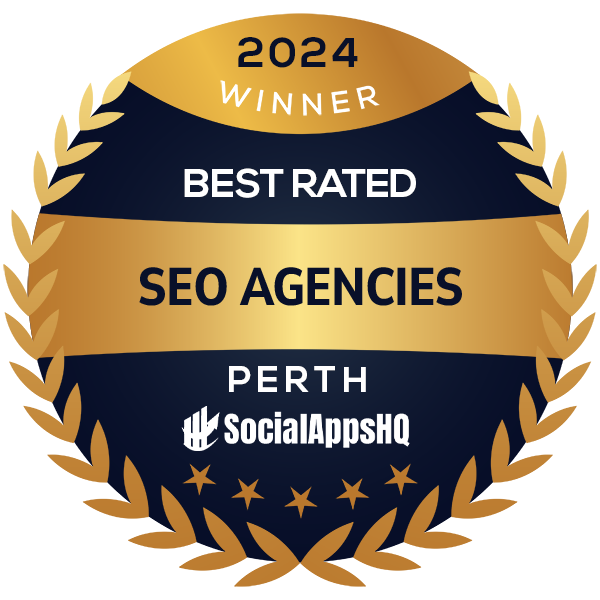As a construction business owner, you know how competitive the industry is. Whether you’re handling residential projects or large commercial builds, staying ahead of the curve in marketing can be a challenge. But with the right strategy, you can generate high-quality leads, boost brand awareness, and grow your client base through online channels. One of the most powerful tools at your disposal is Pay-Per-Click (PPC) advertising.
In this guide, I’ll walk you through everything you need to know about PPC for construction businesses, from the fundamentals to advanced strategies. By the end of this article, you’ll be equipped with the knowledge to launch successful PPC campaigns that drive measurable results.
What You’ll Learn in This Guide:
- What PPC Is and Why It’s Crucial for Construction Businesses
- Setting Clear Goals for Your PPC Campaigns
- Choosing the Right Keywords for Construction PPC
- How to Structure Your PPC Campaign for Maximum Impact
- Writing Ad Copy That Converts
- Creating High-Converting Landing Pages
- Managing Your Budget and Bids Effectively
- Tracking and Optimizing Your Campaigns
- Advanced Strategies for PPC Success
- Should You Manage PPC In-House or Outsource It?
What PPC Is and Why It’s Crucial for Construction Businesses
Pay-Per-Click (PPC) advertising is an online advertising model where advertisers pay a fee each time someone clicks on their ad. For construction businesses, this means placing ads on platforms like Google and Bing to reach potential clients when they search for construction-related services. The beauty of PPC lies in its ability to deliver results quickly, making it an invaluable tool for generating high-quality leads in a competitive market.
PPC advertising is ideal for construction companies because it allows you to target potential clients at the exact moment they are looking for your services, whether it’s for home renovation, commercial construction, or specialty services like plumbing or electrical work.
Setting Clear Goals for Your PPC Campaigns

Before launching your PPC campaign, it’s essential to set clear, measurable goals. This will help guide your strategy and make it easier to measure success. Here are some common goals for construction businesses:
Generate Leads:
Whether you’re looking to attract homeowners for renovations or commercial clients for large projects, defining your target lead volume and cost-per-lead (CPL) is crucial.
Increase Traffic to Your Website:
If you’re new to PPC or have recently revamped your website, your goal might be to increase traffic first.
Drive Local Engagement:
Local targeting is vital in the construction industry. Setting geographic goals will ensure you only reach potential clients in your service area.
Boost Brand Awareness:
If you’re launching a new service or entering a new market, increasing brand visibility can be a valuable objective.
Being specific with your goals will help streamline your campaign and optimize it for the best return on investment (ROI).
Choosing the Right Keywords for Construction PPC
The foundation of any successful PPC campaign is effective keyword selection. The right keywords ensure your ads reach the most relevant audience while avoiding wasted spend on irrelevant clicks.
Start by brainstorming a list of terms related to your business. Think about what potential customers would search for when looking for services you offer. For a construction business, this might include terms like “home remodeling,” “commercial construction services,” or “roof repairs near me.”
Next, use tools like Google’s Keyword Planner to refine your list and identify high-value keywords with the right balance of search volume and competition. A good mix of broad and specific keywords is ideal. While broad terms like “construction” have high competition, specific long-tail keywords like “residential remodeling contractors in Perth” can be more targeted and cost-effective.
How to Structure Your PPC Campaign for Maximum Impact
A well-structured PPC account is key to maximizing your campaign’s performance. The structure helps you stay organized and makes it easier to manage and optimize your ads.
Here’s a simple structure for construction businesses:
Campaigns:
These represent broad categories like “Residential Construction” or “Commercial Construction.” Each campaign should focus on a specific service or location.
Ad Groups:
Within each campaign, create ad groups based on more specific themes. For example, under “Residential Construction,” you could have ad groups for “Kitchen Remodeling,” “Bathroom Renovations,” etc.
Keywords and Ads:
Each ad group should contain tightly-knit keywords that are relevant to that specific service. Ensure your ad copy and landing page match the intent behind these keywords for higher relevance and conversion rates.
Writing Ad Copy That Converts
Your ad copy is your chance to convince potential clients to click on your ad. In the highly competitive construction industry, it’s important to stand out. Here are some tips for writing ad copy that grabs attention and drives action:
- Use Actionable Language: Encourage action with phrases like “Get a Free Quote” or “Schedule Your Consultation Today.”
- Highlight Your Unique Selling Proposition (USP): If you specialize in eco-friendly materials or have a certification that sets you apart, make sure it’s clear in the ad.
- Include Numbers and Social Proof: If you have notable statistics or customer testimonials, use them to build trust. For example, “Over 500 successful home remodels in Perth.”
- Create Urgency: Phrases like “Limited time offer” or “Call now for same-day service” can encourage immediate action.
Creating High-Converting Landing Pages
Once a potential client clicks on your ad, your landing page is where the real conversion happens. A high-converting landing page should be focused on the user’s needs and encourage them to take action, whether it’s requesting a quote or calling for more information.
Key elements of a construction landing page:
- Relevant Headline: Make sure it aligns with your ad copy and clearly explains the value proposition.
- Social Proof: Show testimonials, case studies, or project images to build trust.
- Clear Call-to-Action: Include a prominent CTA like “Get a Free Estimate” or “Contact Us Today.”
- Mobile-Friendly Design: Many users will access your site from mobile devices, so make sure your landing page is optimized for mobile users.
Managing Your Budget and Bids Effectively
PPC works on an auction model where you bid for ad placements. Your goal is to find the right balance between bidding enough to secure top positions without overspending.
Here’s how to manage your budget effectively:
- Set a Daily Budget: Start small, especially if you’re new to PPC. This will allow you to test different ads and keywords without overspending.
- Adjust Bids Based on Performance: Focus on high-performing keywords and adjust bids for underperforming ones.
- Use Automated Bidding: If you’re new to PPC or don’t have the time for manual adjustments, automated bidding strategies like Google Ads’ “Maximize Conversions” can help optimize your campaigns for you.
Tracking and Optimizing Your Campaigns
The success of your PPC campaigns depends on ongoing monitoring and optimization. Track important metrics like Click-Through Rate (CTR), Cost Per Click (CPC), and Conversion Rate to gauge performance.
Optimization strategies:
- Test Different Ad Variations: A/B test different ad copy, images, and CTAs to see what resonates best with your audience.
- Adjust Keyword Targets: If certain keywords aren’t generating quality leads, consider refining or replacing them.
- Use Negative Keywords: Exclude irrelevant terms that could lead to wasted clicks.
Advanced Strategies for PPC Success

Once you have the basics down, consider implementing advanced PPC strategies to scale and improve efficiency:
- Geotargeting: Focus on your specific service areas to prevent wasted clicks from users outside your target regions.
- Remarketing: Show ads to users who have already visited your site but didn’t convert. This keeps your business top-of-mind.
- Ad Scheduling: Run your ads at specific times or days based on when your target audience is most active.
Should You Manage PPC In-House or Outsource It?
Managing PPC in-house can be time-consuming, especially for busy construction business owners. If you have the resources and expertise, handling PPC in-house might be a good option. However, outsourcing to an experienced PPC agency can save time and help you achieve better results.
At [Your Company Name], we offer a free marketing plan for construction businesses to help you get started with PPC. Let our team handle the complexities of PPC so you can focus on what you do best—building and growing your business.
Final Thoughts
PPC advertising is an invaluable tool for construction businesses aiming to expand their online presence, attract qualified leads, and stay competitive. By carefully structuring your campaigns, choosing the right keywords, and optimizing your ads and landing pages, you can drive high-quality leads while keeping your costs in check.
If you’re ready to take your construction business to the next level with PPC, contact us today for a free marketing plan. Let’s work together to create a targeted PPC strategy that drives results for your business.


